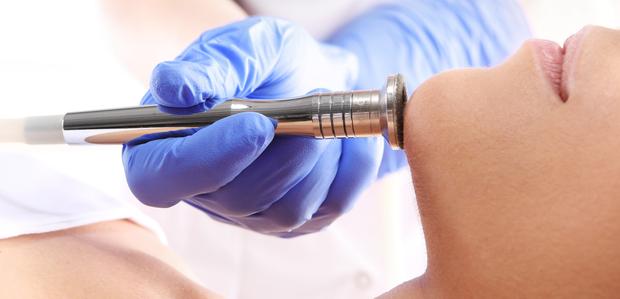Department of Dermatology and Cosmetology

The Department of Dermatology and Cosmetology at Gleneagles Hospitals excels at providing accurate evaluation and treatment of issues concerning the skin and hair. As part of a rapidly progressing field, our Cosmetologists are vastly trained and are equipped with the latest facilities and cosmetology equipment. We deliver the best-in-class healthcare services to cater to the diverse needs of our patients. We ensure utmost comfort and confidentiality with a strong focus on generating desirable end results.
Cosmetic Surgeons at the Department of Dermatology and Cosmetology at Gleneagles Hospitals have gained valuable experience in providing high-end cosmetic treatments and performing cosmetic surgeries. Our professionals aim to apply medical knowledge to cosmetic procedures to provide evidence-based treatments for quality assurance. Our cosmetic procedures are cost-efficient and effective, with individualised treatment plans to take care of everyone's cosmetic requirements.
Our group of doctors has expertise in diagnosing complex skin diseases and researching novel therapies to provide you with the best care and treatments. We have well-equipped labs with trained physicians who utilize advanced conventional surgical techniques to effectively treat a wide range of skin conditions, Skin Cancer and other dermatological problems.
Depending on your condition and skin type, we offer various treatment options. They are:
- Topical treatments
- Radiofrequency cautery
- Microdermabrasion
- Chemical peels
- Ear and nose stud piercing
- Tattooing
- Intra Lesional Therapy
Get checked and avail of the best treatment with the best team of Dermatologists for glowing and healthy skin.
Cosmetology Services We Offer
Under the purview of our Department of Cosmetology, we offer diagnostic and treatment services, not limited to, including:
- Aesthetic Surgery
- Breast Augmentation
- Breast Implant Removal
- Facial Implantation or Soft Tissue Augmentation
- Facial Rejuvenation
- Liposuction and Body Contouring
- Tummy Tuck
- Rhinoplasty
- Dermabrasion
- Forehead Lift
- Blepharoplasty (Eyelid Surgery)
- Rhytidectomy (Facelift)
- Hair Transplantation
- Lip Augmentation
- Upper Arm Lift
- Buttock lift
- Laser Treatment of Leg Veins
- Botox Injections
- Cellulite Treatment
Why Choose Gleneagles Hospitals?
The Department of Cosmetology at Gleneagles Hospitals focuses on providing cost-effective and customised cosmetic solutions backed by advanced surgical facilities and expert healthcare professionals. Our team of cosmetic surgeons perform cosmetic and reconstructive surgeries aimed at enhancing the physical appearance of the patients, thereby giving a boost to their confidence and self-image.
- Compassionate Care
Our cosmetologists are supported by nurses and healthcare professionals who strive to provide the best care and support throughout the journey of diagnosis, treatment, and recovery and ensure obtaining the desired cosmetic results.
- Patient Satisfaction
Patient satisfaction is the goal of the Department of Cosmetology, with a wholehearted focus on providing world-class cosmetic services to evaluate and treat various skin and hair conditions.
Looking for the best cosmetology hospital, reach out to the Gleneagles Hospitals today. Talk to our experts and get a personalised solution to all your problems.
Our Doctors
View all-

Dr Nidhi Singh
Senior Consultant
MBBS, MD
-

Dr Harish Bhende
Senior Consultant
MBBS, M.S Ortho, DNB Ortho
-

Dr Praveen Kumar B Y
Consultant
MBBS, MD
-

Dr Mahesh Patil
Consultant
MD, DNB, DDV
-

Dr Ameet Valia
Consultant
MBBS, Diploma in Dermatology, MD
- Which hospital is best for Dermatology?
Gleneagles Hospitals, India is the best Dermatology hospital in India offering the best Dermatology treatment, skin treatment & care for all types of Dermatological Diseases. Helmed by the best Dermatology doctors in India bringing a wealth of experience and wide-ranging expertise for the treatment of all types of skin conditions and diseases.
FAQ
Why Choose Us?
-
PATIENT EXPERIENCE
Your care and comfort are our top priorities. We ensure that the patients are well informed prior to every step we take for their benefit and that their queries are effectively answered.
-
LATEST TECHNOLOGY
The Gleneagles Hospitals' team stays up to date on the advancements in medical procedures and technologies. Experience the Future Healthcare Technologies now at Gleneagles Hospitals.
-
PROVIDING QUALITY CARE
Strengthening lives through compassionate care, innovative therapies and relentless efforts. It reflects in the DNA of our passionate team of doctors and dedicated clinical staff.










